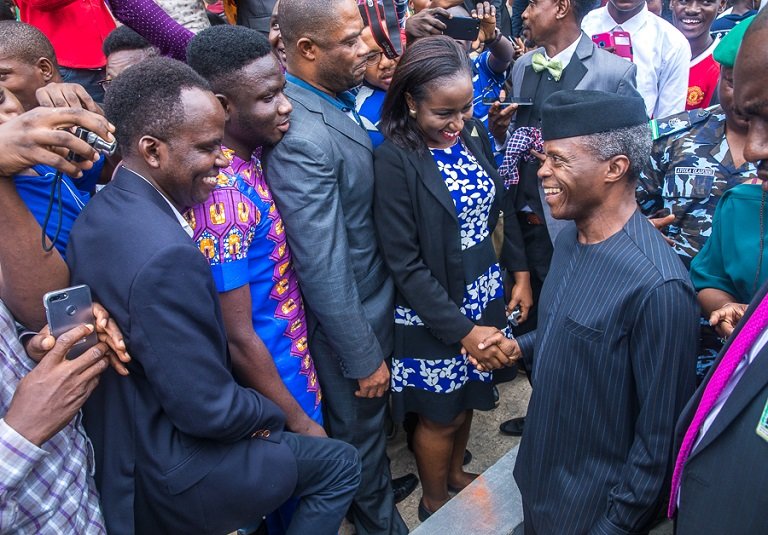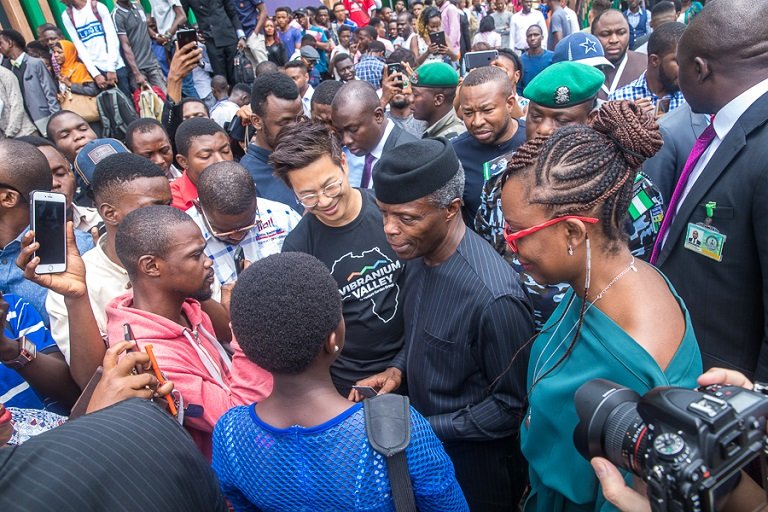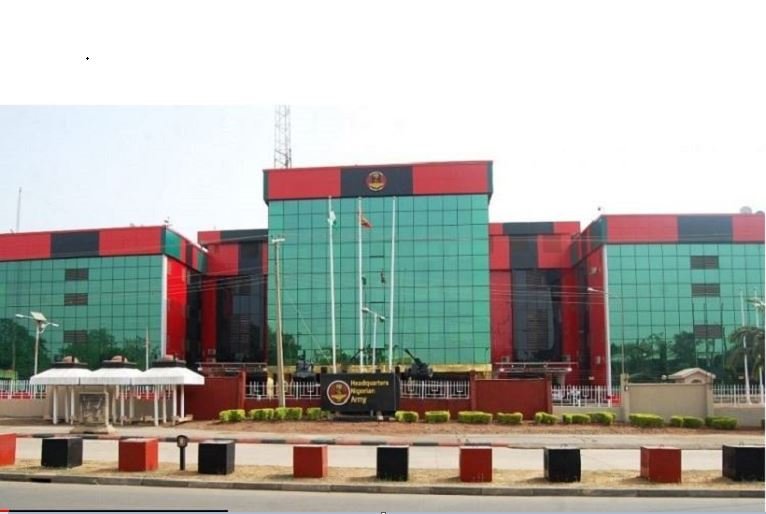
Vice President Yemi Osinbajo says the federal government has trained over one million Nigerians in digital skills over the last one year.
Speaking at the launch of Google Station in Nigeria, he explained that Nigeria’s future hinges on technology and internet.
Osinbajo stated that the federal government is already positioning itself to become a force to reckon with globally.
“In 2016, working with the Office of the Senior Special Assistant to the President on SDGs, I launched the Google Digital Skills Training Programme with the target to train 400,000 Nigerians on basic Digital Skills, working with Google and local Nigerian Tech Training companies.
“We have since surpassed those numbers and trained over a million Nigerians in basic digital skills in the last 24 months,” a statement by his spokesperson Laolu Akandehe read.
“To scale up our support to private sector players in the technology space, I recently inaugurated the Technology and Creative Advisory Group, a subset of our National Industrial Policy and Competitiveness Advisory Council.
Osinbajo explained that the group brings together, young private sector players in the technology and creative sectors and relevant government agencies, working jointly to formulate policies, programmes and projects for the Technology and Creative sectors of our economy.

“Some private sector members of the Advisory Group and relevant government agencies like NITDA, NEPC and the Bank of Industry, went with me on the trip to Silicon Valley.
“Also on that trip, I met with the creative sector in Los Angeles and showcased Nigeria’s readiness and preparedness for investment, and the work we are doing with our Ease of Doing Business Secretariat, to provide an enabling environment for business in Nigeria, and which helped Nigeria rise 24 places on the World Bank’s Ease of Doing Business Index in 2017.
VP Osinbajo in Lagos: declares open Co-working tech/innovation event in Lekki and now in VI headlining Google for Nigeria event. Nigeria's potential in technology is limitless and we shall continue to push policy in that direction & inspire a teeming young, techie populace
— Laolu Akande (@akandeoj) July 26, 2018
He noted that through the GEM Project of the World Bank, the Federal Government has given out over $2million to 79 startups across the country.

“Apart from this, our National Social Investments Programme is working with the National Information Technology Development Agency (NITDA) to support the private sector to establish technology and innovation centers across the country.
READ: Nigeria struggles with crude oversupply
“We have established and launched these Innovation Hub projects across the nation. From the Ventures Platform in Abuja (Ventures Park), to Marydel Hubs and the Edo State Government’s Edo Innovate project in Benin, Edo state, and the Humanitarian Innovation Center in collaboration with the North East Innovation Hub and the International Committee of the Red Cross (ICRC) in Yola, Adamawa state, we are committed to building an ecosystem to drive innovation.

“The Federal Government is now investing in training 5,000 developers as part of our N-Power Tech program, just as we are catalyzing a whole new sector of animation production by training 3,000 young people with scriptwriting, storyboarding, voice acting, animation and post-production skills.
“Not only will we develop their skills, we are providing an initial support of the hardware and software tools that will help them function economically after they are trained.
“We also believe that starting earlier with our students helps to solve tomorrow’s challenges, today. The Federal Government is lending support to initiatives such as the Civic Lab’s Student Innovation Challenge, and the Campus Innovation Challenge by Union and CC Hub, Nigeria’s pioneer Tech Hub in Yaba, Lagos state, to discover and support student entrepreneurs in our tertiary institutions.
Not relenting, Osinbajo said, “Next week, I will launch a Climate Innovation Center in partnership with the Enterprise Development Center at the Lagos Business School. This forms part of our ICT roadmap, in which the private sector is an important stakeholder.”
“The challenge remains connectivity, extending broadband reach, making data cheaper – National Broadband Policy. As a firstv[1] step, the Federal Government, through the Nigeria Communications Commission (NCC), has since licensed a number of Infrastructure Companies (Infracos), who will invest in rolling out broadband infrastructure across Nigeria.
“I believe we can extend broadband reach significantly in a year or two. We will partner in whatever way we can with Google and Nigerian broadband providers like 21st Century Technologies Limited and Backbone Connectivity Network, to quickly achieve extensive broadband coverage.
“Our goal is to create a data-driven digital economy; one that will lead the way not just in Africa, but globally as well.
“And I believe strongly that Nigeria is on the right path. We have the people, the talent, we have a government that sees the potential very clearly, and is showing the determination to unlock that potential.
“Technology has put great power into our hands, as individuals, but more importantly as co-creators and collaborators, to positively and dramatically change the course of human existence. With it, we can solve many of the problems that confront us.
“In addition, we can connect people, grow businesses, influence good governance, and create better lives, and a better country for ourselves and for the future,” he said.










